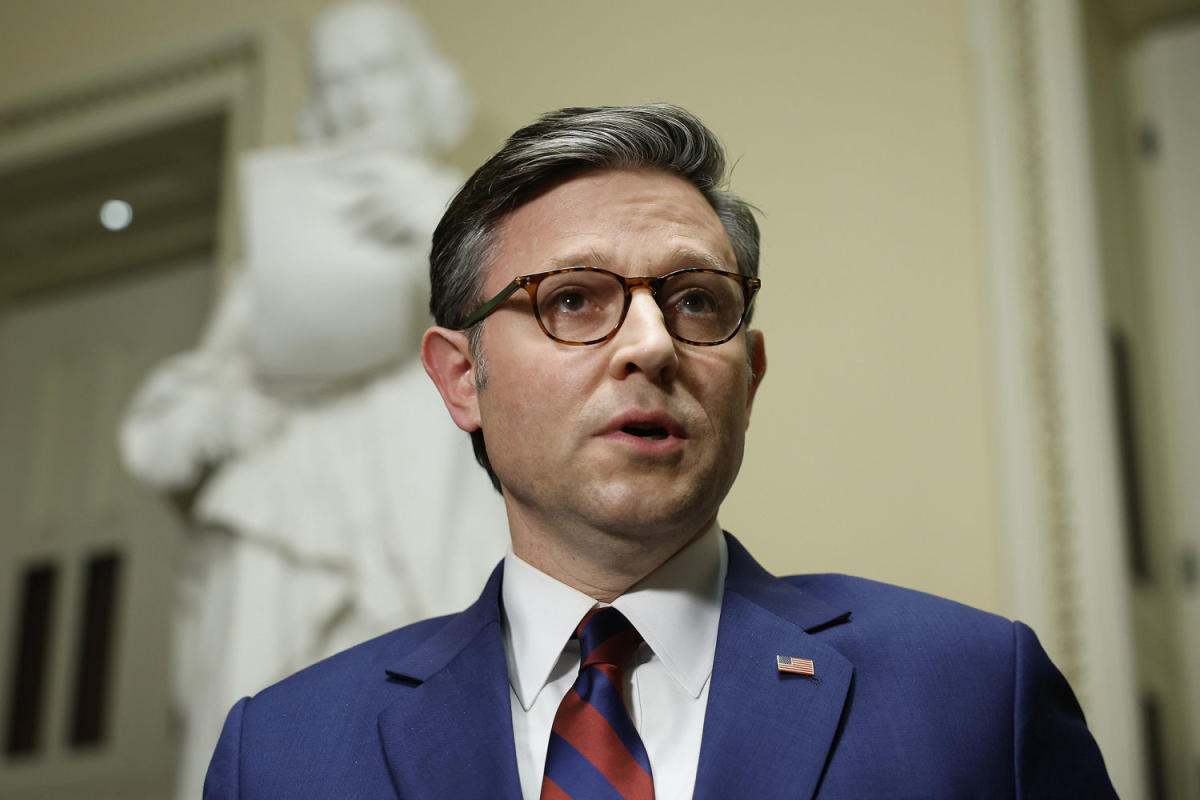
The night before the official start of the 119th Congress, Mike Johnson appeared on Fox Business and expressed optimism about his prospects of retaining the House speakership. Asked if he expected to be re-elected on the first ballot, the Louisiana Republican replied, “I think it’s going to be okay. … We’ll have maybe one no vote, I think.” He added, “I think we get it done on the first round.”
The next morning, just hours before the start of proceedings on the House floor, Johnson was asked again whether he’d win on the first ballot. “I think so,” he said.
As it happens, the incumbent’s optimism proved correct: Following a highly unusual process, Johnson prevailed by the narrowest of margins, receiving 218 votes — the bare minimum for success — three more than the total for House Democratic Leader Hakeem Jeffries.
Advertisement
Advertisement
Based on the initial tally, it appeared that the speaker had come up short: He could only afford to lose two of his own members, and three House Republicans — Thomas Massie of Kentucky, Ralph Norman of South Carolina and Rep. Keith Self of Texas — threw their support behind other GOP lawmakers.
It was at that point when a series of press releases went out responding to Johnson’s first-round failure.
They proved premature. While congressional clerks reviewed the initial balloting, several House Republicans, including Johnson, huddled with Norman and Self. (Massie was apparently deemed unreachable.) We’ll learn soon enough what was said behind closed doors, but the message proved persuasive: Before the gavel came down on the first ballot, the Texan and South Carolinian agreed to change their votes, giving Johnson the support he needed.
This is, of course, the outcome Donald Trump was hoping for: The president-elect not only endorsed the Louisianan, he also invested political capital, making direct appeals to individual members in the run-up to the vote.
Advertisement
Advertisement
If recent history is any guide, Trump will likely claim credit for the outcome fairly soon. What’s more, Johnson, whose fate was closely tied to the president-elect’s wishes, will likely feel indebted to the incoming White House.
Exactly two years ago, then-Rep. Kevin McCarthy, R-Calif., became the first House speaker nominee in 100 years to fail to win the gavel from his fellow party members in the first round of balloting.
It briefly appeared as if this was poised to happen twice in successive Congresses, but to the GOP’s relief, Johnson eked out an unexpected victory.
This article was originally published on MSNBC.com
EMEA Tribune is not involved in this news article, it is taken from our partners and or from the News Agencies. Copyright and Credit go to the News Agencies, email news@emeatribune.com Follow our WhatsApp verified Channel





